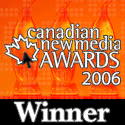Sections
User Functions
Events
Lost? Follow me...
The most visited areas on the site - resume, portfolio, and photo albums - can be accessed via the top nav.
If you've been given a user account, login here.
RSS & RDF Feeds:
Selected News
Welcome to Adrian Crook
American Sucker - by David Denby
- Wednesday, July 06 2005
-
- Contributed by:
- Admin
-
- Views:
- 3,748
 July 2005
July 2005
This was the first in a string of New York media or money-centric books I fluked into reading this summer. Denby's book is a memoir of his time spent trying to earn a million dollars via high tech stocks in the late 90s and early 00s. Through the benefit of hindsight, we instantly recognize the folly of his actions. Denby's motivation was to earn enough money to buy out his soon-to-be-ex-wife's portion of their Manhattan apartment. At one point early on, Denby's investments are looking pretty good - he's up nearly half a million. Of course it all goes bad and he loses a not insignificant chunk of change, but the visceral money-losing tale of this book is just the beginning.
As a New York Times writer, Denby has access to some of the top players of the time. He's able to dine with the SEC Chairman, quizzing him on where he thinks the market will head. Or Henry Blodget - the overly-optimistic Merrill Lynch analyst. Denby is also invited to parties thrown by some of the more prominent (now infamous) businessmen of that era - i.e. Sam Waksal, ex-CEO of ImClone and former friend of Martha Stewart. These are the most interesting parts of this book - the up close examinations of the larger than life personalities of the cast.
Denby throws in a lot of moralizing, a search for the root of his (and others') obsession with the market, and some blog-style retelling of his dating attempts at the time, but none of that is very interesting. The most compelling feeling comes from the fact that we already know the ending for many of the players in this book. Sam Waksal winds up in prison, Henry Blodget is banned from Wall Street, the market tanks, and the author loses a ton of money. Watching the contortions leading up to these inevitable ends is very entertaining.
- Comments (0)
- Trackbacks (0)
Everything I Needed to Know About Business... I Learned from a Canadian - by Leonard Brody and David Raffa

- Sunday, July 03 2005
-
- Contributed by:
- Admin
-
- Views:
- 2,435
 June 2005
June 2005
This was my third book in as many weeks. The reduced diet of TV and Internet seems to be paying off big time.
Leonard Brody and David Raffa’s “Everything I needed to know about business I learned from a Canadian” is a book about the most successful contemporary Canadian entrepreneurs that is more inspirational than educational - a good light read. It’s horizontally focused, so expect to get a broad scan of many industries rather than a deep investigation of any one industry. In fact, the book reads like Cliff Notes (or Coles Notes, if you’re Canadian) versions of each entrepreneur’s biography.
If you’re looking for detailed accounts of the struggles and subsequent successes of these entrepreneurs, you won’t find it here. Instead, you’ll take away an overview of each person’s achievements. The book attempts to distill each 10-15 page profile into 5 “lessons” each business leader has to offer, but often these lessons are either a stretch, overly simplistic, or contrary to other lessons in the book. Nonetheless, it’s still a worthwhile read if only as a cheerleading book for aspiring Canadian entrepreneurs.
- Comments (0)
- Trackbacks (0)
The Tipping Point - by Malcolm Gladwell
- Monday, June 20 2005
-
- Contributed by:
- Admin
-
- Views:
- 2,444
 June 2005
June 2005
Wow, this reading more books thing is sure made easier by watching less TV and not wasting time meandering around the net.
Tipping Point was OK. At about halfway through Malcolm Gladwell’s arguments became a bit slanted and lost a lot of their focus. Basically after the part where he talked about Broken Windows theory (a favourite of mine) and how it cleaned up New York City.
The premise of the book is that small things can start epidemics. Examples include the resurgence of Hush Puppies, Airwalk Shoes, crime cleanup in New York city, teen suicide, etc. Of course Gladwell has come up with buzzwords - some borrowed, others invented - to describe the concepts in his book. "The Law of the Few", "The Stickiness Factor" and "The Power of Context" are the main tenets of the book.
Anyway, it’s a decent, light read in the “Social Sciences” category – despite the fact that you’ll probably find it in the “Business” section of your local bookstore. His other book, “Blink”, pimps an even more sexy and hard-to-prove social theorem – that you can learn enough to accurately judge someone within the first few minutes of meeting them.
- Comments (0)
- Trackbacks (0)
Getting Things Done - by David Allen
- Wednesday, June 15 2005
-
- Contributed by:
- Admin
-
- Views:
- 2,366
 June 2005
June 2005
From Amazon.com: "Getting Things Done offers a complete system for downloading all those free-floating gotta-do's clogging your brain into a sophisticated framework of files and action lists--all purportedly to free your mind to focus on whatever you're working on. However, it still operates from the decidedly Western notion that if we could just get really, really organized, we could turn ourselves into 24/7 productivity machines."
Yes, GTD (the abbrev Allen's converts use to describe the system) is a bit like a trip back to the New Economy days of the late 90s. Back when operating at "Internet speed" was the ideal and those who moved slowly were doomed to failure. But there are some salient points to be taken from this book, even though they could likely be compressed down to a pamphlet.
The GTD system, at its most basic, is Do, Defer, Delegate or Delete. Everything that crosses your desk - email, phone calls, memos, etc. - is broken down to its next physical action. If that action takes less than two minutes, you do it right away. If it takes more than two minutes, you apply one of the 4 Ds I just described.
Most helpful to me is the contextual nature of Allen's GTD system. Next Actions are broken down by the context in which you do them. So if a next action is to make a call, it is sorted under the "@Calls" section of your Outlook tasks. Similar contextual sorting exists for Errands, Office, Home, Agendas (for when you're meeting face to face with someone) and more. For instance, when I'm walking through the city with some time to kill, I can pull up my list of Errands see what needs doing. So far it's worked quite well.
- Comments (0)
- Trackbacks (0)
Peopleware: Productive Projects and Teams - by Tom Demarco, Timothy Lister
- Tuesday, April 26 2005
-
- Contributed by:
- Admin
-
- Views:
- 3,625
 April 2005
April 2005
Stephane - the lead programmer on my project - loaned me Peopleware in April. It was a good read, with solid insight into the mind of a software engineer. Throughout the book I took notes and rather than write a review here, I thought I’d simply share my notes. The book is from the perspective of a senior software developer – i.e. someone in Stephane’s position – so a lot of the book could appear heretical to upper or even middle management. But like the book says, if you can implement even one of the items, you’re ahead of the game.
PS: Italics are thoughts I had for myself when reading and shouldn’t be taken as action items or even the most meaningful parts of the whole thing.
- Resource-driven work estimates are ideal re: productivity toward meeting the task. (Overall, the highest productivity level was achieved when no estimate was prepared at all. The second highest productivity level was when an outside systems analyst prepared the estimate as he knew the work better and didn’t have the biased optimism that the internal people have. Failing that, the third option is resource-driven estimates. Other options such as resource + manager-driven or manager-driven produced the worst productivity levels)
- Comments (0)
- Trackbacks (0)





